Medieval Times Test Questions – Flashcards
Unlock all answers in this set
Unlock answersquestion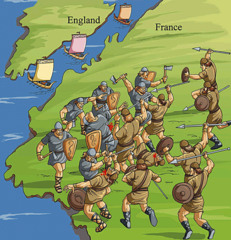
100 Years War

answer
a war between England and France from 1337 to 1453. Finally France won.
question
Apprentice

answer
a person who works for an expert in a trade or craft in return for training
question
Archer

answer
a person who is expert in the use of a bow and arrow
question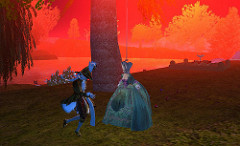
Aristocrat

answer
a member of a rich and powerful family
question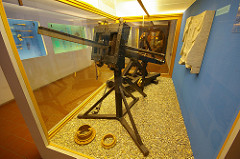
Ballista

answer
engine resembling a crossbow, used in hurling missiles or large arrows
question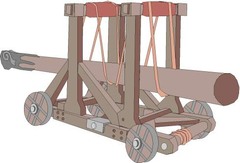
Battering Ram

answer
a ram used to break down doors of fortified buildings/castles
question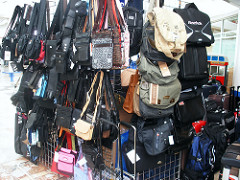
belt bag

answer
a small pouch (usually with a zipper) that attaches to a belt and is worn around the waist
question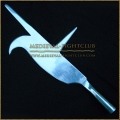
bill hook

answer
A medieval weapon used primarily by foot soldiers; looked like a spear with a hook on the opposing side of the spear; the hook was used to pull cavalrymen off of their horse in battle
question
Bishop

answer
A church official who leads a large group of Christians in a particular region
question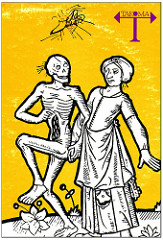
Black Death

answer
the epidemic form of bubonic plague experienced during the Middle Ages that killed millions of the people of Europe
question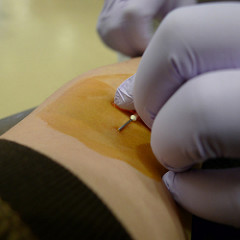
Bloodletting

answer
a common technique to cure the sick involving opening a vein or letting leeches suck out blood. Medieval doctors believed this helped restore balance in the body and spirit. Unfortunately it made many patients weaker.
question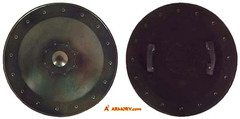
Buckler

answer
small round shield that would often have a metal protrusion on it for knocking an opponent down
question
Castle

answer
a large building occupied by a vassal, a lord, or a king and fortified against attack
question
Cathedral

answer
a large or important Christian church
question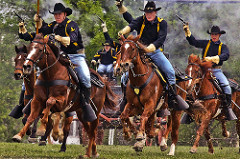
Cavalry

answer
soldiers on horseback
question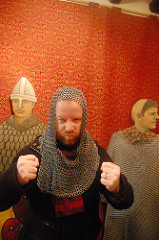
Chain Mail

answer
(Middle Ages) flexible armor made of interlinked metal rings
question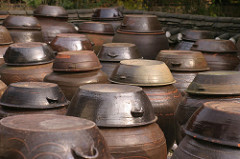
Chamber Pot

answer
a portable container or bucket in the Middle Ages used as a toilet
question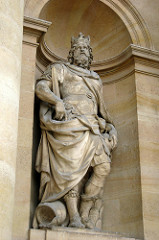
Charlemagne

answer
king of the Franks, Charles the Great; united much of Europe under one kingdom during the Middle Ages
question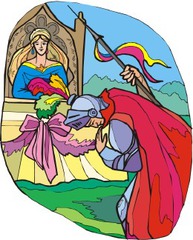
Chivalry

answer
Code of conduct for knights during the Middle Ages
question
Clergy

answer
Members of the church are referred to as this
question
Coat of Arms
answer
a shield marked with designs of a particular family or group
question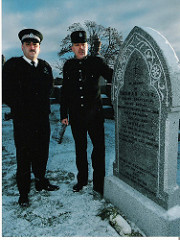
Constable

answer
person in charge of the castle when the lord and lady are away; a peace officer like a sheriff
question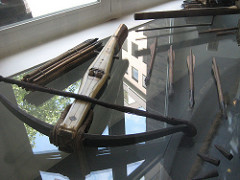
Crossbow

answer
a medieval weapon made up of a bow that was fixed across a wooden stock ( which had a groove to direct the arrow's flight) and operated by a trigger
question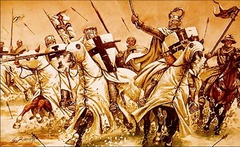
Crusades

answer
A series of military expeditions launched by Christian Europeans to win the Holy land back from Muslim control.
question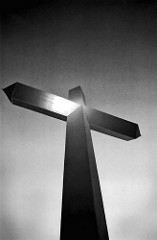
Crux

answer
Latin word for cross
question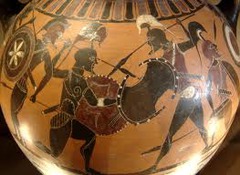
Dark Ages

answer
refers to Europe in Middle Ages, lack of Latin literature, lack of written history, lack of respect for science, lack of respect for medicine, lack of material cultural achievements in general - Hint: the lightbulb had gone off all over Europe
question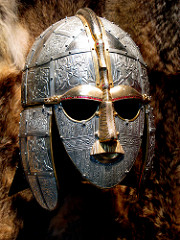
Spangen

answer
Medieval helmet
question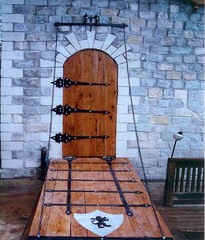
Drawbridge

answer
a wooden bridge in a castle leading to a gateway, capable of being raised or lowered
question
Dubbing

answer
special ceremony of becoming a knight, tapped both shoulders with a sword
question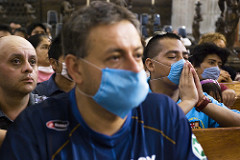
Epidemic

answer
a widespread outbreak of an infectious disease
question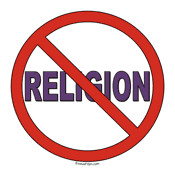
Excommunicate

answer
exclude from a church or a religious community, to declare that a person or group no longer belongs to a church; to kick out
question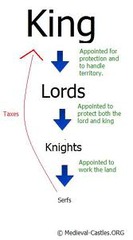
Feudalism

answer
a political and social system that developed during the Middle Ages; nobles offered protection and land in return for service; kings and queens at the top, nobles/ladies/lords/aristocrats next, vassals/knights next, and on the bottom were the peasants and serfs
question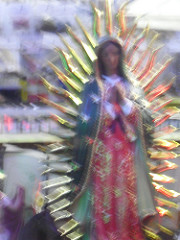
Folk Healer

answer
Medieval doctor that primarily depended upon cures based in nature, herbs, plants, etc
question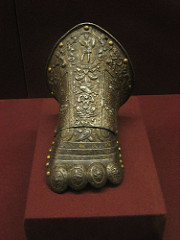
Gauntlet

answer
a glove of armored leather that a knight would use in battle
question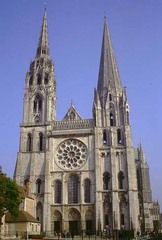
Gothic

answer
a style of architecture developed in northern France that spread throughout Europe between the 12th and 16th centuries; today we say that anyone that dresses in really dark colors is this
question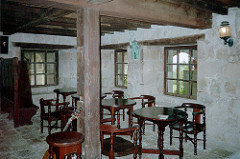
Great Hall

answer
main eating and living area in most castles
question
Greek Fire
answer
a chemical weapon; when sprayed or thrown into enemy ships, the liquid burst into flames setting ships on fire
question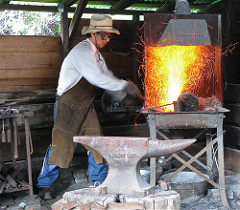
Guild

answer
A medieval organization of crafts workers or trades people.
question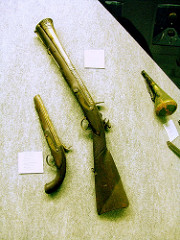
Gunpowder

answer
The formula, brought to China in the 400s or 500s, was first used to make fumigators to keep away insect pests and evil spirits. In later centuries it was used to make explosives and grenades and to propel cannonballs, shot, and bullets.
question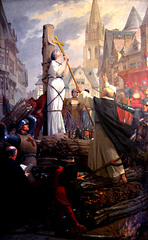
Heretic

answer
a label that the church would give a person who the church thought was a witch/warlock/sorcerer; a person that holds religious beliefs in conflict with the beliefs of the Roman Catholic Church; thank goodness for our First Amendment (Freedom of Religion)
question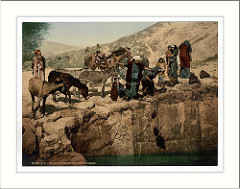
Holy Land

answer
Jerusalem and parts of the surrounding area where Jesus lived and taught; land fought over during the Crusades
question
Jerusalem

answer
A city in the Holy Land, regarded as sacred by Christians, Muslims, and Jews.
question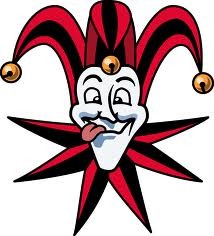
Jester

answer
a professional clown employed to entertain a king or nobleman in the middle ages
question
Joan of Arc

answer
French heroine and military leader inspired by religious visions to organize French resistance to the English and to have Charles VII crowned king; was later found guilty of heresy and burned at the stake; we read a story about her in class
question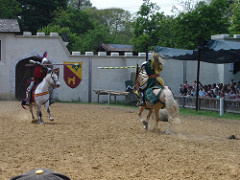
Jousting

answer
Fighting on horseback with lances, with the goal of knocking the opponent from his horse; one point for hitting your opponent in the midsection; two points for hitting opponent in the head; three points for knocking your opponent off his horse
question
Knight

answer
originally a person of noble birth trained at warfare and chivalry; the medievall policeman or soldier
question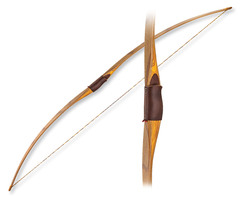
Long Bow

answer
formidable weapon which the English archers carried. It was 6 ft long and fired 3x faster than a crossbow. Could pierce the armor of a knight.
question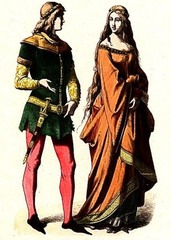
Nobles

answer
People of high birth, such as dukes and earls. They were the people who lived in the castles; in medieval times they would refer to a person of high birth as Lady such and such or Lord such and such
question
Magna Carta

answer
Limited the power of the king! the royal charter of political rights given to rebellious English barons by King John in 1215, This document, signed by King John of England in 1215, is the cornerstone of English justice and law. It declared that the king and government were bound by the same laws as other citizens of England. It contained the antecedents of the ideas of due process and the right to a fair and speedy trial that are included in the protection offered by the U.S. Bill of Rights
question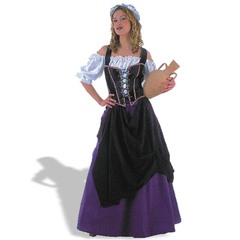
Maiden

answer
an unmarried girl in the middle ages was often referred to as this
question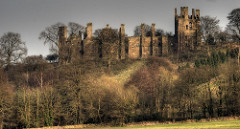
Manor

answer
A large estate, often including farms and a village, ruled by a lord.
question
Medieval Barber
answer
A medieval type of doctor that specialized in cutting skin (surgery or bloodletting)
question
Merchant

answer
someone who buys and sells goods for a living
question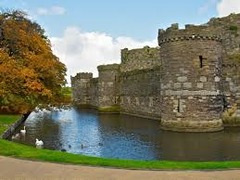
Moat

answer
a deep trench sometimes filled with water that surrounded a castle
question
Monk

answer
a man who separates himself from ordinary human society in order to pursue a life of total dedication to God
question
Nun

answer
a woman who has taken a sacred vow to devote her life to prayer and service to the church
question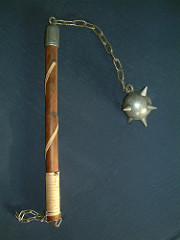
Morning Star

answer
weapon with a ball and spikes; any of a group of medieval club-like weapons which included one or more spikes. Each used, to varying degrees, a combination of blunt-force and puncture attack to kill or wound the enemy
question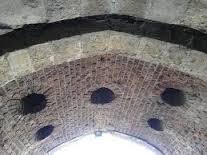
Murder Holes

answer
holes hidden above a castle's doors through which boiling hot liquids could be dumped, or rocks hurled down on invaders
question
Page

answer
in medieval times a youth acting as a knight's attendant as the first stage in training for knighthood; usually about age 7
question
Parliament

answer
type of government in England; AKA the representative assembly in England is called this
question
Pope

answer
the head of the Roman Catholic Church
question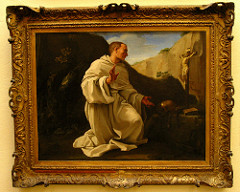
Pope Urban II

answer
the specific pope who called for the first crusade (religious wars) to reclaim Jerusalem from the Muslims
question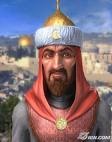
Saladin

answer
The leader of the Muslims in the third crusade; he captured Jerusalem in 1187
question
Vikings

answer
Invaders/sailors/warriors of Europe that came from northern Europe and Scandinavia; one major reason feudalism developed
question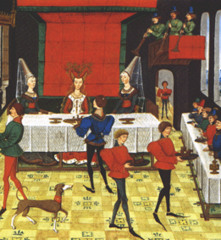
Scullion

answer
a kitchen servant employed to do menial tasks/jobs (especially washing) in a castle
question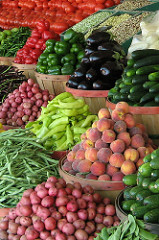
Self sufficient

answer
not needing anything from the outside world (you grow your own crops, own clothing, raised livestock)
question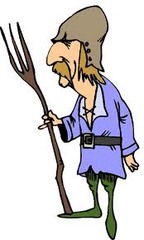
Serf

answer
(Middle Ages) a person who is bound to the land and owned by the feudal lord
question
Siege

answer
Strategy for attacking a castle; could use starvation, psychological warfare, or siege weapons (i.e. catapult, towers, trebuchets)
question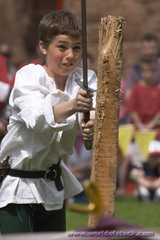
Squire

answer
the second stage to becoming a knight, at around teenhood, kinghts assistant, caring for horses, train with weapons, and go to battle
question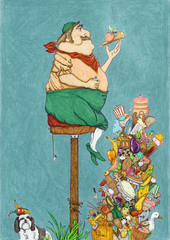
Taster

answer
someone who samples food or drink for its quality; in medieval times this person usually sampled food for a noble, king, or queen
question
Roman Catholic Church
answer
the Christian Church based in the Vatican and presided over by a pope and an episcopal hierarchy
question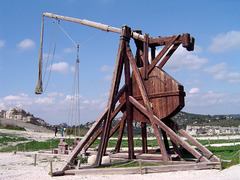
Trebuchet

answer
war engine developed in the Middle Ages employing counterweights to allow missiles to be launched from great distances
question
Troubador
answer
A poet or musician who traveled around and entertained people with songs about chivalry and courtly love.
question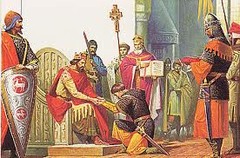
Vassal

answer
in the middle ages, a man who usually was given a fief (land) by his lord in exchange for loyalty; third from the top on the feudal pyramid
question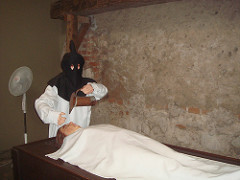
Inquisition

answer
A Roman Catholic team for investigating and prosecuting charges of heresy - especially the one active in Spain during the 1400s; a very sad time in history for the Catholic Church
question
King Arthur

answer
a legendary king of the Britons (possibly based on a historical figure in the 6th century but the story has been retold too many times to be absolutely sure if he really existed) Big Hint: said to have led the Knights of the Round Table at Camelot
question
Robin Hood

answer
Legendary outlaw from northern England; led a band of merry men (fellow outlaws); he attacked and punished those who violated the social system and law. Robin and his merry men performed acts to reattribute justice. He symbolized the deep resentment of aristocratic corruption and abuse. He represented struggle against tyranny and oppression. He stole from the rich and gave to the poor.
question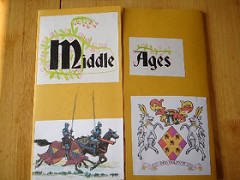
Middle Ages

answer
The historical time period from around 476 A.D. up to around 1450 A.D. between the fall of Rome and the birth of the Renaissance; This time period lasted for approximately (circa) 1000 years.
question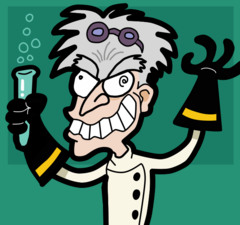
Mr. Saeger

answer
Mad scientist that works at the end of the hall on team 7C



